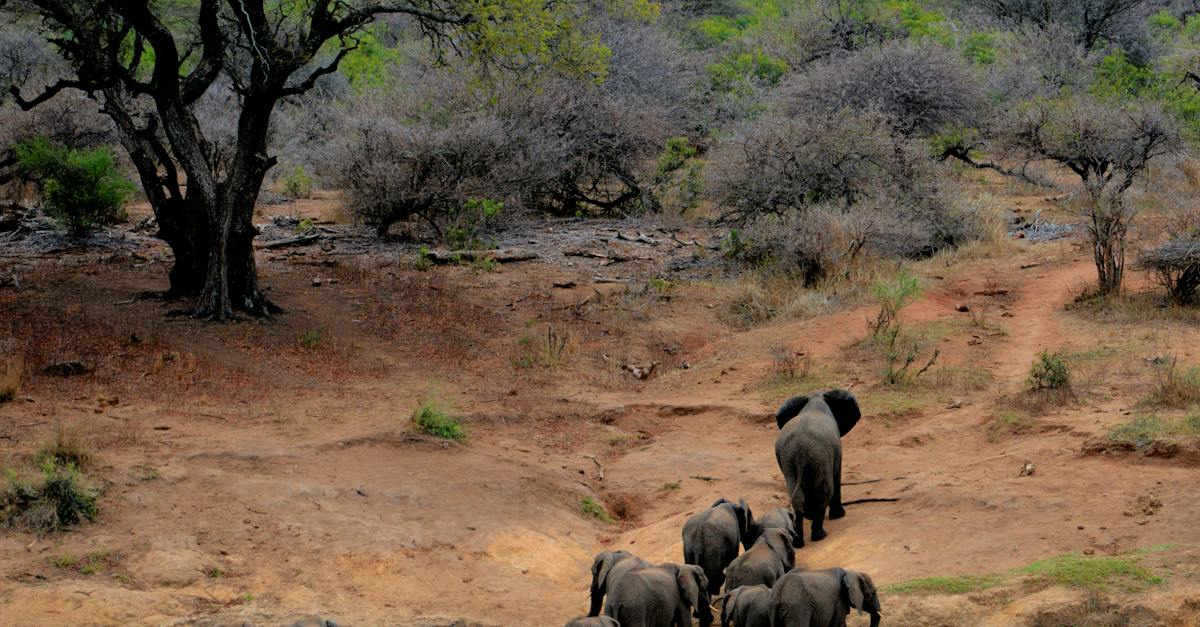Welcome to our exploration of why national parks are better than zoos. As nature enthusiasts, we believe that there is something truly magical about the untamed beauty of our national parks. In our post, we will investigate into the reasons why these vast expanses of wilderness offer a more enriching and authentic experience than zoos. From the awe-inspiring landscapes to the opportunity to witness animals in their natural habitats, national parks provide a unique and immersive encounter with the wonders of the natural world. Join us as we uncover the many reasons why national parks reign supreme over zoos.
Key Takeaways
- National parks offer unparalleled natural beauty, with diverse landscapes and ecosystems to explore and appreciate.
- National parks provide the opportunity to witness wildlife in their natural habitats, behaving as they naturally would, creating a more authentic and immersive experience than zoos.
- National parks offer a range of outdoor activities, such as hiking and wildlife spotting, allowing visitors to create lasting memories and connect with nature.
- By visiting national parks, we contribute to their conservation efforts and support the preservation of these natural treasures for future generations.
- National parks offer an unparalleled opportunity to observe wildlife in its truest form, with animals roaming freely and thriving in their natural habitat.
- By visiting national parks, we contribute to the long-term survival of wildlife and their habitats through entrance fees and permits.
- National parks provide immersive and authentic experiences, with up-close encounters with wildlife and a showcase of the intricate webs of life in our natural world.
- National parks offer a wealth of educational opportunities, providing a chance to learn about the natural world in its truest form and understand the interconnectedness of ecosystems.
- National parks play a pivotal role in conservation efforts, collaborating with research institutions and wildlife organizations to protect endangered species and promote sustainable practices.
- Visitors to national parks have access to additional resources, such as visitor centers and informative displays, to enhance their educational experience.
- National parks ensure the preservation of ecosystems by allowing natural processes to take place and preventing human interference, creating a sanctuary for plant and animal species.
- National parks maintain biodiversity by encompassing a wide range of habitats and supporting a multitude of species and ecological interactions.
- The space limitations and artificial environments of zoos cannot fully replicate the complex dynamics and biodiversity found in national parks.
- Visiting national parks not only provides knowledge but also fosters a deeper connection with the natural world and contributes to its preservation.

The Natural Beauty of National Parks
When it comes to experiencing the beauty of nature in its purest form, national parks are unparalleled.
These breathtaking landscapes are a testament to the awe-inspiring wonders of the natural world.
From towering mountains to serene lakes, and vibrant forests to vast deserts, national parks offer a diverse array of habitats and ecosystems for us to explore and appreciate.
One of the most captivating aspects of national parks is the opportunity to witness untouched and unspoiled beauty.
Unlike zoos, where animals are confined to artificial enclosures, national parks provide a haven for wildlife to roam freely in their natural habitats.
We have the privilege to see these fascinating creatures in their native environments, behaving as they naturally would – an experience that is both humbling and awe-inspiring.
Also, national parks allow us to immerse ourselves in the tranquility and serenity of nature.
As we hike through lush forests or stand in awe at the base of a majestic waterfall, we can’t help but feel a deep sense of connection to the natural world.
The sights, sounds, and scents of these pristine landscapes provide a soothing escape from the hustle and bustle of our daily lives.
In national parks, we have the opportunity to participate in a range of outdoor activities.
Whether it’s hiking, camping, wildlife spotting, or simply enjoying a picnic surrounded by breathtaking scenery, there’s something for everyone to enjoy.
We can explore marked trails that reveal hidden gems and secret vistas, creating memories that will last a lifetime.
By visiting national parks, we also have the chance to contribute to their conservation.
Our entrance fees and support go towards preserving and protecting these natural treasures for future generations to enjoy.
This sense of responsibility and stewardship further enhances the value of our experience in national parks.
So let’s escape the confines of zoos and embrace the untamed beauty of national parks. Let’s immerse ourselves in nature’s wonders and create lasting memories in these remarkable landscapes.
Wildlife in Their Natural Habitat
When it comes to experiencing wildlife in its truest form, national parks offer an unparalleled opportunity.
Unlike zoos, where animals are confined to limited spaces, national parks provide vast expanses of land for animals to roam freely and thrive in their natural habitat.
In national parks, we have the privilege of witnessing animals behaving just as they would in the wild – grazing on lush grasslands, hunting for prey, or simply basking in the sun.
This authentic experience allows us to gain a deeper understanding and appreciation of the natural behaviors and interactions of these majestic creatures.
Besides, national parks are home to an incredible diversity of wildlife.
From elusive predators like the grizzly bear and the gray wolf to iconic species like the bald eagle and the American bison, these protected areas harbor a rich world of life.
The breathtaking variety of species found in national parks showcases the intricate webs of life that exist in our natural world.
By visiting national parks, we not only have the opportunity to observe wildlife in their natural environment but also contribute to their conservation efforts.
Entrance fees and permits help fund crucial initiatives aimed at preserving and protecting the habitats of these animals.
Our visit to a national park becomes an act of support and solidarity in safeguarding the future of these incredible creatures.
But don’t just take our word for it. Check out these two articles from reputable sources that discuss the importance of wildlife in their natural habitat:
- National Geographic – The Benefits of Animals Living in the Wild
- World Wildlife Fund – The Importance of Protecting Wildlife in Their Natural Habitat
Experience the thrill of witnessing wildlife thriving in their natural habitat and contribute to their long-term survival by visiting national parks.

Immersive and Authentic Experiences
When it comes to immersing yourself in the wonders of nature, there’s no better place than national parks.
Unlike zoos, national parks provide an unparalleled opportunity to experience wildlife in their natural habitat.
Here, you won’t find enclosures or fences separating you from the animals.
Instead, you’ll have the privilege of witnessing them up close, behaving as they would in the wild.
In national parks, animals have vast expanses of land to roam freely and thrive.
This allows for a more authentic experience, where you can observe their natural behaviors and interactions.
Whether it’s watching a bear catch fish in a pristine river or seeing a herd of majestic elk grazing in an open meadow, these encounters are truly awe-inspiring.
Not only do national parks offer immersive wildlife experiences, but they also showcase the intricate webs of life that exist in our natural world.
From the smallest insects to the largest predators, the diversity of wildlife in national parks is astounding.
Each species plays a vital role in maintaining the delicate balance of ecosystems, and by visiting national parks, you have the opportunity to witness this interconnectedness firsthand.
By contributing to the conservation efforts of national parks through entrance fees and permits, you are directly supporting the long-term survival of wildlife and their habitats.
Your visit helps preserve these natural wonders for future generations to enjoy.
So, if you’re craving an authentic and immersive experience with nature, skip the confined spaces of zoos and head to a national park.
Witnessing wildlife thriving in their natural habitat is an experience that will leave you with a deep appreciation for the beauty and complexity of the natural world.
Educational Opportunities in National Parks
National parks offer a wealth of educational opportunities for visitors of all ages.
Whether you’re a nature enthusiast or just curious about the world around you, these protected areas provide a unique and immersive learning experience.
Here’s why national parks are superior to zoos when it comes to education:
- Real-Life Learning: National parks offer a chance to learn about the natural world in its truest form. Instead of observing animals in confined spaces, visitors have the opportunity to witness wildlife thriving in their natural habitats. This firsthand experience allows for a deeper understanding of their behaviors and interactions.
- Environmental Education Programs: Many national parks have structured programs designed to educate visitors about the ecosystems and wildlife within the park. These programs include guided hikes, ranger-led talks, and interactive exhibits that cover a range of topics, from flora and fauna to geological formations.
- Interconnectedness of Ecosystems: Exploring national parks provides a unique opportunity to understand the interconnectedness of different species and ecosystems. Visitors can observe how plants, animals, and natural processes interact and depend on each other for survival, fostering a sense of appreciation and responsibility for the environment.
- Conservation Initiatives: National parks play a pivotal role in conservation efforts. They often collaborate with research institutions and wildlife organizations to carry out projects focused on protecting endangered species, restoring habitats, and promoting sustainable practices. By visiting national parks, you directly contribute to these vital conservation initiatives.
- Additional Resources: National parks offer a wide range of resources to enhance the educational experience. From visitor centers equipped with informative displays to educational materials and guidebooks, these resources help learning and provide in-depth information about the park’s history, geology, and wildlife.
When it comes to education, national parks provide a hands-on and immersive experience that simply cannot be replicated in a zoo.
By exploring these natural wonders, you not only gain knowledge but also develop a deeper connection with the natural world and contribute to its preservation.

Preservation of Ecosystems
When it comes to the preservation of ecosystems, national parks hold a distinct advantage over zoos.
National parks are vast expanses of untouched wilderness, where diverse ecosystems thrive and interact harmoniously.
In these protected areas, natural processes are allowed to take place, ensuring the long-term survival of various plant and animal species.
One key aspect of national parks is their focus on conservation.
These parks are established with the explicit purpose of safeguarding natural habitats and the species that call them home.
By preventing human interference, national parks ensure that ecosystems remain intact, creating a sanctuary for wildlife.
National parks also play a crucial role in maintaining biodiversity.
They encompass a wide range of habitats, including forests, wetlands, grasslands, and mountains.
This diverse world supports a multitude of species, allowing for intricate ecological interactions.
Visitors to national parks have the opportunity to witness the interconnectedness of ecosystems firsthand, gaining a deeper understanding of the delicate balance that exists in nature.
By contrast, zoos, although serving a valuable role in education and conservation, often cannot replicate the complex dynamics of natural ecosystems.
The space limitations of zoos mean that only a fraction of the species found in national parks can be housed, which leads to a loss of biodiversity.
Also, the artificial environments in zoos can never fully replicate the intricate web of interactions found in the wild.
To further emphasize the importance of national parks in preserving ecosystems, we encourage you to visit the National Park Service website and International Union for Conservation of Nature (IUCN) website for more information on the efforts being made to protect and preserve our planet’s natural heritage.

